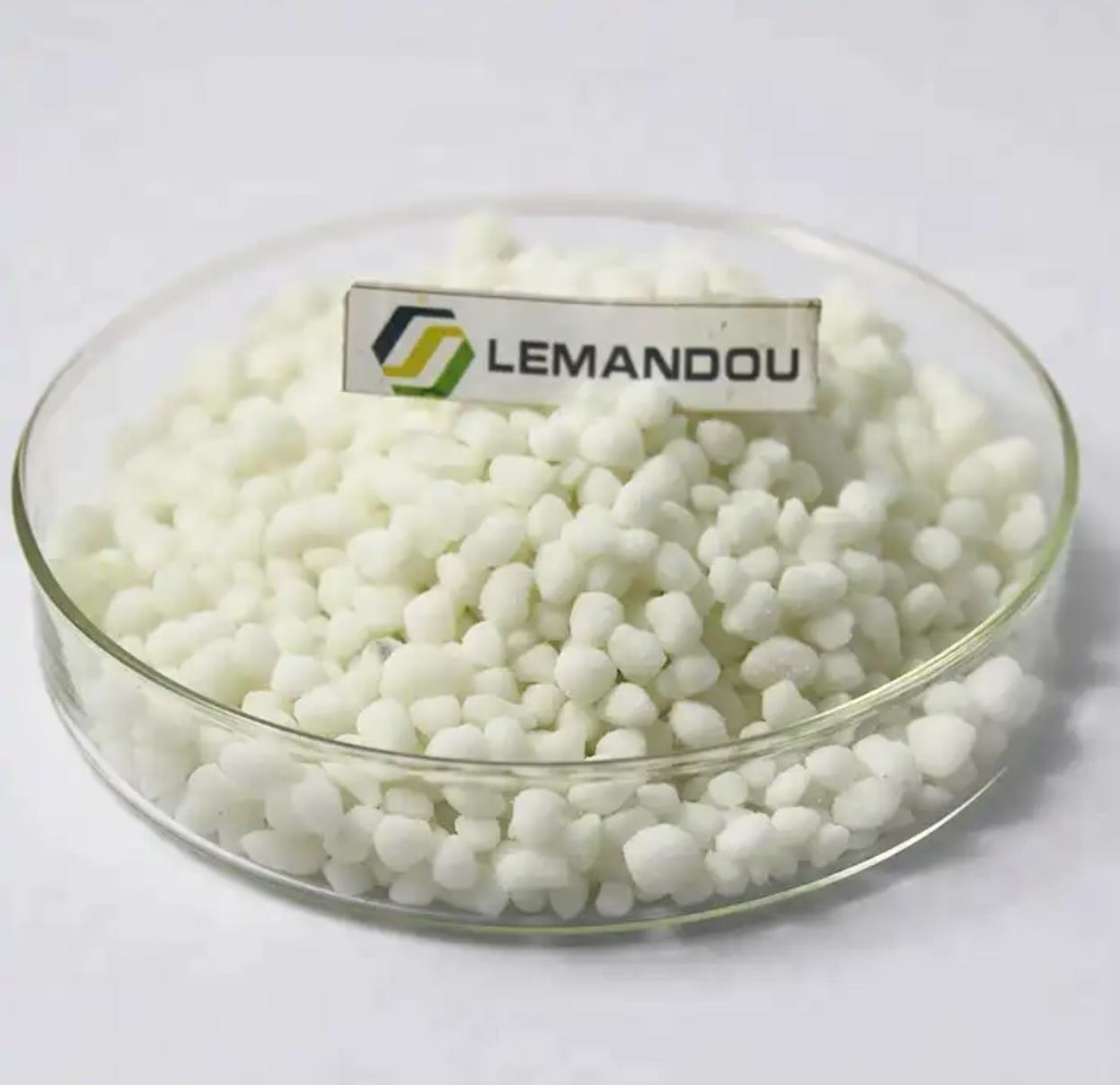The composition is different: the sulfur compound fertilizer contains low chlorine content, the national standard is less than 3%, and contains a lot of sulfur element, which can effectively improve the soil sulfur deficiency symptoms, while the chlorine-based compound fertilizer contains a lot of chlorine element, which has adverse effects on some crops.
2. The process is different: the chloride ion content in potassium sulfate compound fertilizer is very low, and the chloride ion is removed in the production process; The potassium chloride compound fertilizer does not remove the chlorine element harmful to chlorine crops in the production process, so the product contains a lot of chlorine element.
3. Different scope of application: chlorine-based compound fertilizer has adverse effects on the yield and quality of chlorine-free crops, seriously reducing the economic benefits of such cash crops; The sulfur-based compound fertilizer is suitable for all kinds of soil and all kinds of crops, and can effectively improve the appearance and quality of all kinds of cash crops, and can significantly improve the grade of agricultural products.
4. Different fertilizer efficiency: chlorine-based compound fertilizer forms a large number of chloride ion residues in the soil, which is easy to cause soil compaction, salinization, alkalization and other adverse phenomena, thus worsening the soil environment and reducing the nutrient absorption capacity of crops. The sulfur element is the fourth nutrient element after nitrogen, phosphorus and potassium, which can effectively improve the situation of sulfur deficiency and directly provide sulfur nutrition for crops.
5. Different application methods: chlorine-based compound fertilizer can be used as base fertilizer and topdressing, and should not be used as seed fertilizer. When used as base fertilizer, it should be mixed with organic fertilizer and phosphate rock powder on neutral and acidic soil, and applied early for topdressing. The sulfur compound fertilizer can be used as base fertilizer, topdressing fertilizer, seed fertilizer and root topdressing fertilizer.
Sulfur-based compound fertilizer is widely used, and the application effect is good in sulfur-deficient soil and vegetables that need more sulfur such as onion, leek, garlic, etc. In rape, sugarcane, peanut, soybean and bean that are sensitive to sulfur deficiency, the application of sulfur-based compound fertilizer has a better response, but it is not suitable for application in aquatic vegetables.
For the use of chlorine-based compound fertilizer, it is necessary to distinguish between chlorine-loving crops, chlorine-tolerant crops and chlorine-averse crops.
Chlorine-loving crops are: coconut, onion, spinach, celery, cabbage and so on;
The plants with strong resistance to chlorine are: beet, rice, millet, sorghum, barley, wheat, corn, eggplant, pea, chrysanthemum, etc. Medium chlorine resistant crops are: cotton, soybean, rape, tomato, citrus, grape, tea, onion, radish and so on; Chlorine crops are: lettuce, green beans, tobacco, potato and taro.
The sulfur compound fertilizer is further divided into chemical synthetic sulfur fertilizer and the sulfur fertilizer produced by mixing and granulation. The difference between them is this
1, they are divided into different: chemical synthesis of sulfur-based fertilizer is a composite fertilizer produced by chemical reaction, many insoluble and harmful components in the fertilizer filter out, as well as zinc and other trace elements, retain the ore favorable boron, manganese, molybdenum, high nutrient utilization rate; The sulfur based fertilizer produced by composite granulation contains the sulfur based fertilizer produced by reproducing two or three kinds of nitrogen, phosphorus, and potassium fertilizers, and does not contain trace elements such as zinc, boron, manganese, and molybdenum.
2, different release cycles: chemically synthesized sulfur-based fertilizers are produced by spray granulation and multiple coating production. The compound fertilizer has the characteristics of high strength, long release period and lasting fertilizer effect. Because of the mechanical mixed granulation, the strength of the compound fertilizer is relatively small and the release time is shorter than that of the chemical synthesized sulfur fertilizer.
3, the nutritional uniformity is different: chemically synthesized sulfur-based fertilizers are produced through chemical reactions, so the NPK nutrients in the particles are very uniform, and the fertilizers used in crops are also uniform; The sulfur-based fertilizers produced by compound granulation are mechanically mixed, and the NPK nutrients in the particles are not as uniform as those in chemically synthesized sulfur-based fertilizers.
4, product quality difference: chemical synthetic sulfur-based fertilizer has good water solubility, high water soluble phosphorus content, high quality; The raw material price of compound sulfur fertilizer is higher, and the sulfur fertilizer with high quality raw material is lower than that of choice. The cost of high-quality raw sulfur-based fertilizer is several hundred yuan higher per ton. Therefore, the quality of complex sulfur-based fertilizers on the market varies greatly, and the effect is also different. In the selection, try to choose large manufacturers of complex sulfur fertilizer.
Chloro-complex (combination) compound fertilizer means that the potassium source is from potassium chloride, and some or all of the nitrogen source is ammonium chloride compound (combination) fertilizer.
Post time: Jan-18-2024






